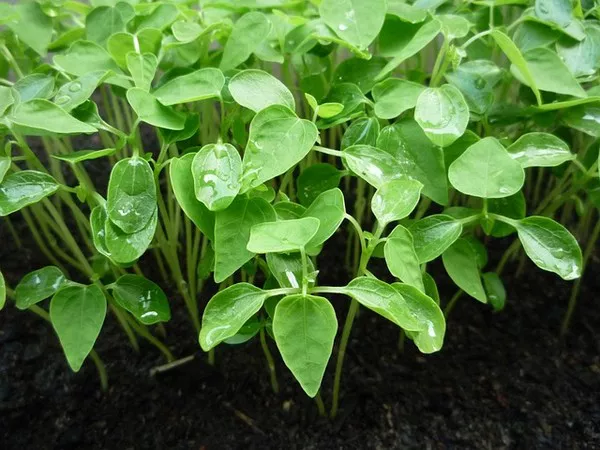A breakthrough at the University of Tennessee’s Herbert College of Agriculture introduces a novel approach to gamma radiation detection using bioengineered potato plants, offering a simple yet effective means of monitoring harmful radiation levels without relying on complex technology.
Ph.D. student Rob Sears is the mastermind behind this innovation, having developed a unique potato plant, also known as a phytosensor, designed to visually signal elevated radiation levels through changes in leaf fluorescence. When exposed to gamma radiation, the plant’s leaves emit a distinctive green glow, providing a clear and visible warning across considerable distances. Potatoes, known for their widespread cultivation in diverse climates, serve as the ideal candidate for this research and the potential mass implementation of the developed varieties.
Sears emphasizes the resilience and adaptability of potatoes, which reproduce through tubers in the soil, spreading across varied terrains while yielding genetically identical offspring for consistent results. He explains, “Potatoes are highly resilient and are excellent at adapting and multiplying in different environments. They also have complex responses that are often specific to an environmental stressor, making them ideal reporters of conditions such as gamma radiation.”
The primary goal of this research is to make these responses discernible and evident even from a distance, effectively serving as a natural warning sign of harmful radiation without the need for intricate mechanical sensors. As nuclear energy utilization continues globally, there is an escalating demand for accessible and efficient radiation detection methods. Phytosensors present an affordable, easy-to-interpret solution that requires no mechanical maintenance, potentially enhancing the safety and well-being of individuals in close proximity to radiation sources.
Sears reflects on the transformative journey of his Ph.D. research, expressing gratitude for the education and experience gained at the Herbert College of Agriculture. He acknowledges the crucial support of faculty partners Neal Stewart, a professor in the UT Department of Plant Sciences, and Scott Lenaghan, a professor in the UT Department of Food Science.
Looking ahead, Sears, set to graduate in December 2023, anticipates further contributions to the field of bioengineering and the continuous improvement of our surroundings through the development of bioengineered plant varieties. The phytosensors not only represent a significant advancement in radiation monitoring but also underscore the potential of synthetic biology to engineer plants as functional “devices” with broader implications for agriculture and environmental safety.


